Managing People Quotes
Most popular managing people quotes
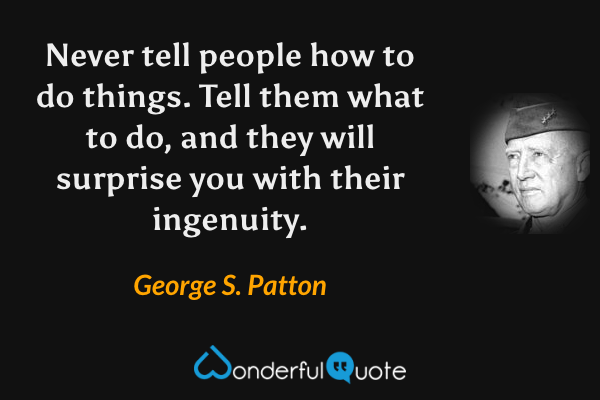
Never tell people how to do things. Tell them what to do, and they will surprise you with their ingenuity.
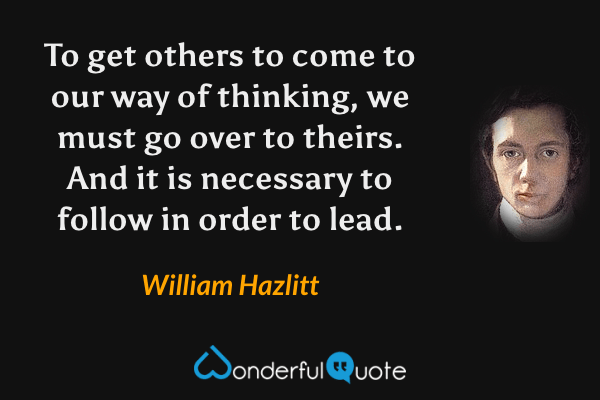
To get others to come to our way of thinking, we must go over to theirs. And it is necessary to follow in order to lead.

Three things—autonomy, complexity, and a connection between effort and reward—are, most people agree, the three qualities that work has to have if it is to be satisfying.
When money is used as an external reward for some activity, the subjects lose intrinsic interest for the activity.
!["When money is used as an external reward for some activity, the subjects lose intrinsic interest for the activity," he [Professor Edward Deci] wrote. Rewards can deliver a short-term boost—just as a jolt of caffeine can keep you cranking for a few more hours. But the effect wears off—and, worse, can reduce a person's longer-term motivation to continue the project. - Daniel H. Pink quote.](/img/q/10/1410A-when-money-is-used-as-an-external-reward-some-activity-daniel-h-pink.png)
"When money is used as an external reward for some activity, the subjects lose intrinsic interest for the activity," he [Professor Edward Deci] wrote. Rewards can deliver a short-term boost—just as a jolt of caffeine can keep you cranking for a few more hours. But the effect wears off—and, worse, can reduce a person's longer-term motivation to continue the project.

Only contingent rewards—if you do this, then you'll get that—had the negative effect. Why? "If-then" rewards require people to forfeit some of their autonomy.

Goals that people set for themselves and that are devoted to attaining mastery are usually healthy. But goals imposed by others—sales targets, quarterly returns, standardized test scores, and so on—can sometimes have dangerous side effects.
![SDT [Self-Determination Theory], by contrast, begins with a notion of universal human needs. It argues that we have three innate psychological needs—competence, autonomy, and relatedness. - Daniel H. Pink quote.](/img/q/16/1416A-sdt-self-determination-theory-by-contrast-begins-with-notion-universal-daniel-h-pink.png)
SDT [Self-Determination Theory], by contrast, begins with a notion of universal human needs. It argues that we have three innate psychological needs—competence, autonomy, and relatedness.

Seek first to understand and then to be understood.

From all business, my favorite case on incentives is Federal Express. The heart and soul of their system—which creates the integrity of the product—is having all their airplanes come to one place in the middle of the night and shift all the packages from plane to plane. If there are delays, the whole operation can't deliver a product full of integrity to Federal Express customers. And it was always screwed up. They could never get it done on time. They tried everything —moral suasion, threats, you name it. And nothing worked. Finally, somebody got the idea to pay all these people not so much an hour, but so much a shift— and when it's all done, they can go home. Well, their problems cleared up overnight.
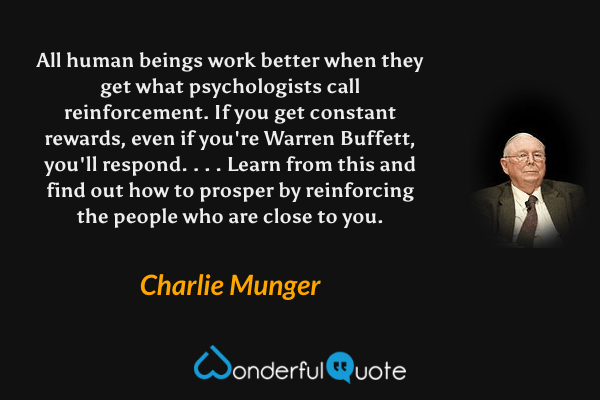
All human beings work better when they get what psychologists call reinforcement. If you get constant rewards, even if you're Warren Buffett, you'll respond. . . . Learn from this and find out how to prosper by reinforcing the people who are close to you.
The conventional definition of management is getting work done through people, but real management is developing people through work.
Never tell people how to do things. Tell them what to do and they will surprise you with their ingenuity.
No person can be a great leader unless he takes genuine joy in the successes of those under him.

Getting results through people is a skill that cannot be learned in the classroom.

First-rate people hire first-rate people; second-rate people hire third-rate people.

I don't want any yes-men around me. I want everybody to tell me the truth even if it costs them their job.
Never try to teach a pig to sing; it wastes your time and it annoys the pig.
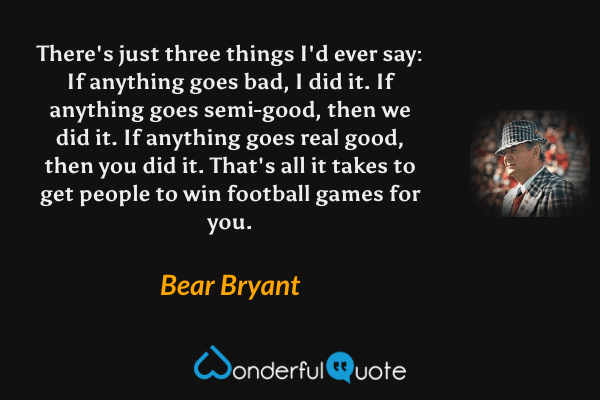
There's just three things I'd ever say: If anything goes bad, I did it. If anything goes semi-good, then we did it. If anything goes real good, then you did it. That's all it takes to get people to win football games for you.
Always mistrust a subordinate who never finds fault with his superior.

The shepherd always tries to persuade the sheep that their interests and his own are the same.
When people are highly motivated, it's easy to accomplish the impossible. When they are not, it's impossible to accomplish the easy. So how do we motivate them? Discard the mushroom theory of management—the one that says, keep your employees in the dark and throw a lot of manure on them. If you're going to manage a growing company, you have to concentrate on managing people, not ignoring them.
A good manager is a man who isn't worried about his own career but rather the careers of those who work for him.
One of the most important tasks of a manager is to eliminate his people's excuses for failure.

Management is nothing more than motivating other people.

Every time I fill a vacant office I make ten malcontents and one ingrate.

Of course in selecting staff I shall make a few bad decisions. After all, Jesus Christ had to make twelve appointments, and one of them was a bummer.
Hire character. Train skill.
I don't pay good wages because I have a lot of money; I have a lot of money because I pay good wages.
Not for nothing is their motto TGIF—'Thank God It's Friday.' They live for the weekends, when they can go do what they really want to do.
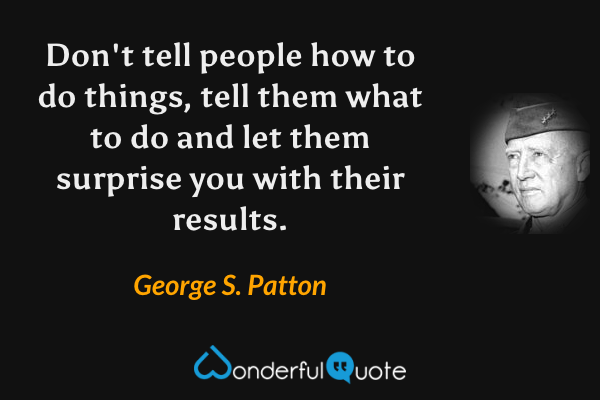
Don't tell people how to do things, tell them what to do and let them surprise you with their results.
You can lead a horse to water, but you can't make it drink.

She outlines one of the most important things to remember when it comes to transparency: you need to balance it with empathy. If I tell you I hate your haircut, I'm being transparent. I'm also being an asshole.
I'm giving you these comments because I have very high expectations and I know that you can reach them.
Group performance depends on behavior that communicates one powerful overarching idea: We are safe and connected.
Culture is a set of living relationships working toward a shared goal. It's not something you are. It's something you do.
Skill 1—Build Safety—explores how signals of connection generate bonds of belonging and identity. Skill 2—Share Vulnerability—explains how habits of mutual risk drive trusting cooperation. Skill 3—Establish Purpose—tells how narratives create shared goals and values.
What is one thing that I currently do that you'd like me to continue to do? What is one thing that I don't currently do frequently enough that you think I should do more often? What can I do to make you more effective?
The key to creating psychological safety, as Pentland and Edmondson emphasize, is to recognize how deeply obsessed our unconscious brains are with it. A mere hint of belonging is not enough; one or two signals are not enough. We are built to require lots of signaling, over and over. This is why a sense of belonging is easy to destroy and hard to build. The dynamic evokes the words of Texas politician Sam Rayburn: "Any jackass can kick down a barn, but it takes a good carpenter to build one."
For rewards, be predictable; for punishment, unpredictable.


